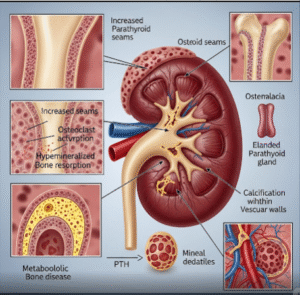Overview
Mitral Valve Prolapse (MVP) is a relatively common heart condition in which the valve between the left atrium and left ventricle does not close properly, sometimes causing blood to leak backward (mitral regurgitation). In Korea, where advanced cardiology and cardiovascular surgery are highly developed, MVP is usually detected early through routine health screenings and echocardiography. Leading hospitals such as Seoul National University Hospital, Asan Medical Center, and Samsung Medical Center offer world-class diagnostic and treatment options for MVP, ranging from conservative management to minimally invasive valve repair surgery.
What is Mitral Valve Prolapse?
Mitral Valve Prolapse occurs when the leaflets of the mitral valve bulge (prolapse) back into the left atrium during contraction of the heart. In most cases, it is mild and does not cause significant health problems. However, in some individuals, it can lead to complications such as mitral regurgitation, arrhythmias, or infective endocarditis. MVP is often diagnosed during adolescence or adulthood and is more common in women.
Symptoms
- Many individuals have no symptoms (asymptomatic)
- Chest pain or discomfort
- Heart palpitations or irregular heartbeat
- Shortness of breath, especially during activity or when lying flat
- Fatigue and reduced exercise tolerance
- Lightheadedness or fainting in rare cases
Causes
- Abnormalities in the connective tissue of the heart valve
- Genetic predisposition (family history of MVP or connective tissue disorders)
- Associated with conditions such as Marfan syndrome, Ehlers-Danlos syndrome, or scoliosis
- Age-related changes in heart valve structure
Risk Factors
- Family history of mitral valve prolapse
- Female gender (slightly higher prevalence)
- Connective tissue disorders
- Older age (risk of valve degeneration increases)
Complications
- Mitral regurgitation (backward leakage of blood through the mitral valve)
- Arrhythmias (irregular heart rhythms, sometimes requiring treatment)
- Infective endocarditis (infection of the heart valve, though rare)
- Heart failure in severe untreated cases
Prevention
- Regular heart check-ups and echocardiography, especially for individuals with family history
- Good dental hygiene to reduce risk of endocarditis
- Lifestyle measures: maintaining a healthy diet, regular exercise, avoiding excessive caffeine and stimulants
- Early management of associated conditions such as hypertension or arrhythmias
Treatment Options in Korea
South Korea offers advanced cardiology and heart surgery services, ensuring effective management of MVP.
- Diagnosis
- Echocardiogram (primary diagnostic tool)
- Electrocardiogram (ECG) and Holter monitoring for arrhythmias
- Cardiac MRI or stress testing in complex cases
- Medical Management
- Most cases require only regular monitoring
- Beta-blockers or antiarrhythmic medications for palpitations and irregular heartbeats
- Antibiotics may be prescribed before dental or surgical procedures in rare high-risk cases to prevent endocarditis
- Surgical & Advanced Treatments
- Minimally invasive mitral valve repair (preferred over replacement in Korea)
- Mitral valve replacement in cases of severe regurgitation
- Robotic-assisted and endoscopic heart surgeries are available at leading Korean hospitals













